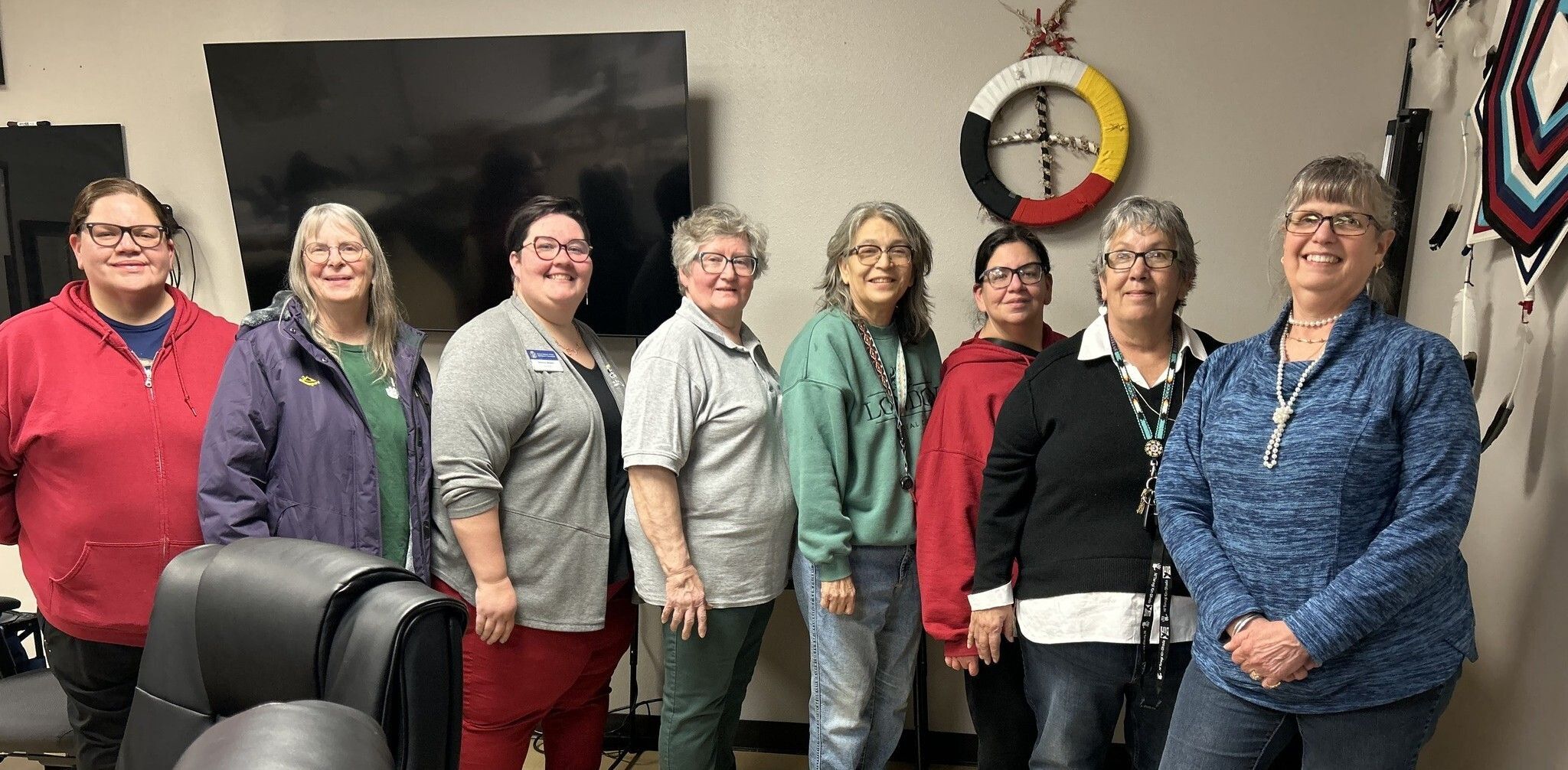LSS Partners to Address Food Insecurity in Charles Mix County
A casual conversation between two friends about canning became a community-driven collaboration empowering people with skills in gardening, food preservation and local food systems to foster self-reliance, wellness and economic opportunity. And in just a few months.

It all started in March 2025 when Jacque Johnson, Older Adult Resource Network Project Coordinator for LSS of South Dakota, was chatting with a friend about how she spent her afternoon. She had canned apples and made apple butter and apple pie filling. The mother of five first taught herself how to can when her children were young and has always appreciated self-sufficiency, even grinding her own flour.
“When I told her I had been canning, she replied, ‘Others would like to learn how to can,’” says Johnson of her friend.
That friend happened to be Shelly Saunsoci, who runs the local food kitchen.
“She feeds people who can’t feed themselves,” says Johnson. “The conversation got our wheels turning.”
The two women reached out to Mary Jo Parker, a well-respected retired teacher who now runs the Lake Andes Food & Wellness Council, library and community garden, and began conversations with the SDSU Extension, the Rural Office of Community Services, Wagner Area Growth and the Yankton Sioux Tribe.
“All these organizations were doing little pieces of this work, but no one had put it all together,” says Johnson. “We all got together and wondered if we could pool our resources and offer something impactful to the community to help address food insecurity.”
And Preserve & Prosper was born.
WORKSHOPS IGNITE LOCAL INTEREST
The group decided to offer a series of open houses in Lake Andes, Wagner and Marty in March and April to gauge public interest. All three meetings were packed with community members interested in learning how to garden, can and eat healthier. The open houses also offered attendees the opportunity to start seeds that could eventually be planted in a garden.
Then in June, a workshop was scheduled to teach people how to make and preserve salsa. The team got the word out through newspaper articles, radio interviews, posters, a booth at the local farmers’ market and a Facebook group.
Because only eight jars can fit in the canner the team was using, space was limited to eight attendees, but the interest was so great that they offered three sessions so all 24 registrants could participate. The canning teachers were community members who demonstrated the recipes and taught attendees how to can. At the end, everyone could snack on the results.
The limits on attendees also kept the classes small enough to be completely hands-on. “We want them to do the actual work and ask questions and learn to do everything safely,” says Johnson. “The whole goal was to have the older adults pass on the skills they have.”
The second workshop took place in August, when more than 30 people signed up to can dill pickles. Yes, that meant there was a waiting list. Then in September they canned chokecherry jelly.
Along the way, Master Food Preserver volunteers became involved, and a grant is currently being written to provide funding for more people in the community to go through that training so the community has more canning teachers.
GROWTH TAKES ROOT
The results have been clear, and quick. Lake Andes has a beautiful community garden that largely went unused, until now. This year, the garden saw a 700 percent increase in its use.
The Lake Andes Public Library now offers canning kits people can check out just like a book.
A survey also was offered to attendees of the open houses and the workshops. Reviews are glowing, with one exception: Attendees want the classes to be longer. Organizers have listened and added more time to each workshop.
The collaboration and contributions of all the partner entities has been critical to the program’s success.
“Before the first open house, I was sure no one would show up,” says Johnson. “It’s been a perfect storm that it fit the specific goals of each of the entities. I have never seen anything like this before in my life. It just all fell together.”
And at a time when food prices continue to rise and in an area where it can be a trek to reach affordable groceries.
“When you learn how to grow your own food and preserve it, you increase your ability to weather whatever comes your way,” says Johnson. “And who doesn’t want to eat healthier and save money?”

